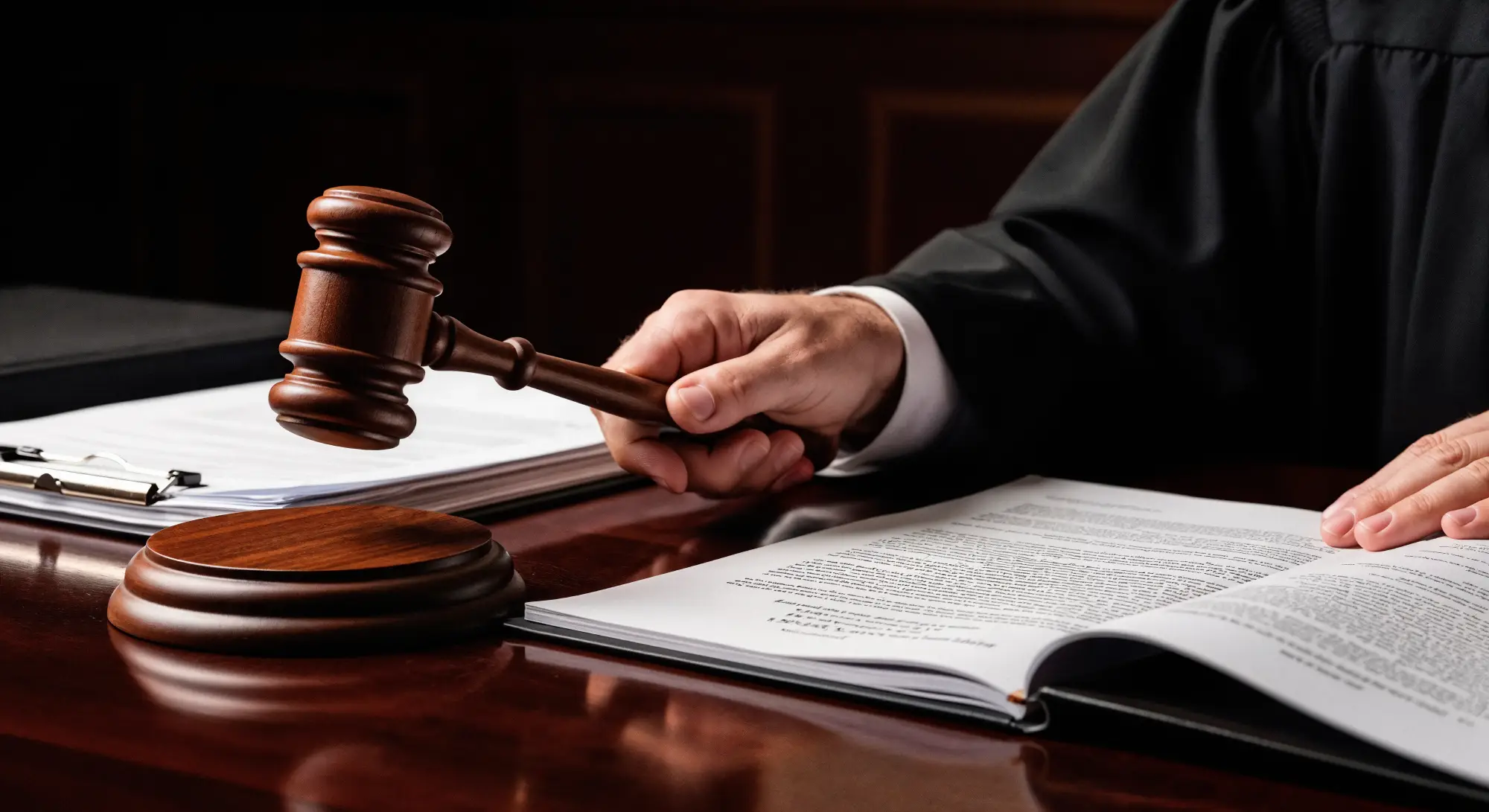
Table of Contents
ToggleUnderstanding Refugee Hearings
A refugee hearing is a pivotal moment in seeking protection in Canada. It’s where your story is formally presented and evaluated to determine if you qualify as a person in need of protection or a Convention refugee.
The Purpose of a Refugee Hearing
At its core, the refugee hearing aims to assess the credibility and validity of your claim for protection. The Immigration and Refugee Board (IRB), specifically the Refugee Protection Division (RPD), is responsible for making this decision. They will consider whether you face a well-founded fear of persecution in your home country based on race, religion, nationality, political opinion, or membership in a particular social group. Alternatively, they will evaluate if you are at a higher risk of torture, cruel or unusual punishment, or threats to your life.
This hearing is your chance to explain why you fled your country, what dangers you will face if you return, and why you need protection in Canada. Every detail matters, and the RPD member presiding over the hearing will listen closely to your testimony and review the evidence you provide.
What Happens During the Hearing
The hearing typically begins with introductions. The RPD member will introduce themselves and explain their role. If you have a legal representative, they’ll also be present, along with an interpreter if required. In some cases, a representative from the Minister of Immigration, Refugees and Citizenship Canada may attend to challenge your claim, though this isn’t always the case.
Once the hearing starts, you’ll be asked if you will tell the truth and nothing but the truth. From there, the RPD member will review the documents related to your case. They’ll assign exhibit numbers to the evidence you’ve submitted, such as your Basis of Claim (BOC) form, identity documents, and any supporting materials like medical records or witness statements.
Your testimony forms the heart of the hearing. You’ll be asked questions by the RPD member to clarify details about your claim. This is where you share your story, explain the threats you faced in your home country, and discuss why returning isn’t an option for you. If you have legal counsel, they may guide you in presenting your case effectively. If not, the RPD member will take extra care to ensure your story is fully heard.
If witnesses are part of your case, they will testify after you. Each witness is brought in separately to maintain the integrity of their testimony. Their role is to support your claim by providing additional details or verifying key parts of your story.
Decision Making
Once all testimony and evidence have been presented, you or your counsel will have the opportunity to make final remarks. This is your chance to summarize your case and highlight why you meet the criteria for protection. If the Minister’s counsel is present, they will also make their final arguments.
The RPD member might deliver their decision immediately after the hearing. In other cases, the decision will come later in writing. Either way, you’ll receive a written Notice of Decision that explains the outcome and the reasons behind it.
Roles of Participants in a Refugee Hearing
When you walk into a refugee hearing, it’s natural to feel nervous or unsure about who’s who and what everyone’s role is. Knowing what to expect and understanding the roles of the people in the room can make things a little less overwhelming. Here’s a breakdown of the key participants and how they fit into the process.
The Refugee Protection Division (RPD) Member: The Decision-Maker
The RPD member is the person in charge of your hearing. Think of them as the judge in the room—they listen to your story, review the evidence, and make the final decision about your refugee claim. Their job isn’t to argue or challenge you but to understand your situation and decide if you qualify for protection under Canadian law.
Here’s what they’ll do during the hearing:
Start with introductions and explain how the hearing will proceed.
Go through the documents and evidence you submitted as part of your claim.
Ask you questions to better understand your experiences and why you’re seeking protection.
You don’t need to have perfect answers, but it’s important to be honest and do your best to explain your story clearly. The RPD member is there to ensure they have all the facts to make a fair decision.
You: The Claimant
This is your moment. You’re the one seeking protection, and the hearing is your chance to share your story in your own words. You’ll be asked questions about your experiences, your fears, and why you believe returning to your home country isn’t safe for you.
Your role is simple but essential:
Be truthful about your experiences.
Answer questions as clearly as you can.
Bring any required documents or evidence to support your claim.
It’s okay to feel nervous—most people do. Just remember, this is about you telling your story so the RPD member can understand what you’ve been through.
Your Legal Counsel (If You Have One)
If you’ve hired a lawyer or an immigration consultant, they’re there to help you. They’ll guide you through the process, make sure your case is well-prepared, and speak on your behalf if needed. If you’re unsure about something during the hearing, they can step in to clarify or advocate for you.
Here’s how they can support you:
Help you prepare your testimony and understand what to expect.
Review the evidence the RPD member will see and address any concerns.
Speak up if there’s a need to counter arguments or clarify misunderstandings.
Having a lawyer isn’t required, but they can make a big difference, especially if your case is complex.
The Minister’s Counsel (Sometimes Present)
In some hearings, a representative of the Canadian government might attend. Their role is to challenge your claim if they believe there’s a reason you don’t qualify for refugee protection. For example, they might question your credibility or argue that the risks you’ve described don’t meet the legal criteria.
If the Minister’s counsel is there, don’t worry too much. Your lawyer (if you have one) will handle most of the back-and-forth with them. If you don’t have legal representation, the RPD member will ensure the process is fair and that you’re given the chance to respond fully.
The Interpreter
If English or French isn’t your first language, an interpreter will be provided to help you. Their job is to make sure you can understand everything that’s being said and express yourself clearly. They’ll translate questions, your answers, and any other communication during the hearing.
It’s important to let the IRB know in advance if you need an interpreter and to specify the language or dialect you’re most comfortable with. Remember, they’re there for you, so don’t hesitate to ask if something needs to be repeated or clarified.
Witnesses (If Applicable)
Sometimes, witnesses can support your case by adding more information or backing up key parts of your story. For example, a witness might be someone who knows about the persecution you faced or an expert who can explain the conditions in your home country.
Witnesses wait outside the hearing room until it’s their turn to testify. When they come in, they’ll answer questions from the RPD member and possibly your lawyer or the Minister’s counsel. Make sure any witnesses you bring are prepared and know the details they’re there to discuss.
What You Need to Know
Everyone in the hearing has a specific role, and the process is designed to be as fair and thorough as possible. The RPD member is there to make a decision based on the facts, not to trip you up. Your job is to share your story truthfully, with the support of your lawyer or witnesses if you have them.
This might feel like a lot, but it’s all about making sure your voice is heard. Knowing who’s in the room and what they’re there to do can help you feel a little more at ease and ready to focus on what matters—telling your story.

Common Challenges Faced During Refugee Hearings
A refugee hearing can be a nerve-wracking experience, and it’s common for claimants to face obstacles during the process. From emotional stress to language barriers, these challenges can make an already tricky situation feel overwhelming.
Emotional Stress and Anxiety
One of the biggest challenges for many claimants is the emotional weight of the hearing. Sharing your story—often about traumatic events—can bring up painful memories. It’s not unusual to feel overwhelmed, anxious, or even unsure about how much detail to share.
What can help:
Take your time: You’re not expected to rush through your testimony. It’s okay to pause, collect your thoughts, and take deep breaths if needed.
Seek support beforehand: Talk to a trusted friend, counselor, or support group about your fears. Sometimes, discussing your concerns ahead of time can ease the emotional burden.
Focus on the truth: Remember, the hearing is about your story. You don’t need to embellish or hold back—just tell the truth as clearly as you can.
Language Barriers
If English or French isn’t your first language, expressing yourself during the hearing can feel like a major obstacle. Even with an interpreter present, you might worry about whether your words are being translated accurately or if nuances in your story are being lost.
What can help:
Be clear and concise: Try to keep your answers focused and straightforward. This makes it easier for the interpreter to convey your message accurately.
Speak up if something feels off: If you think the interpreter didn’t fully capture what you said, politely ask for clarification or repeat your point.
Prepare in advance: Practicing how you’ll describe key parts of your story in simple terms can make communication smoother.

Understanding Legal Procedures
For many people, a refugee hearing is their first experience with legal proceedings. The formal setting, legal jargon, and procedural rules can feel intimidating, especially if you’re representing yourself.
What can help:
Learn the basics: Take time to understand the structure of the hearing and what will be expected of you. Your Basis of Claim (BOC) form is a good place to start.
Ask questions: If you don’t understand something during the hearing, don’t hesitate to ask the RPD member for clarification.
Consider legal representation: A lawyer or immigration consultant can guide you through the process and help you feel more prepared.
Challenges With Evidence
Evidence plays a critical role in your refugee hearing, but gathering and presenting it can be tricky. You might struggle to obtain important documents from your home country, or you might worry about whether the evidence you have is enough to support your claim.
What can help:
Submit what you can: Even if you don’t have all the documents you’d like, provide whatever evidence is available, such as identity documents, medical records, or letters of support.
Explain gaps: If you’re missing certain evidence, be honest about why. For example, if it is dangerous to obtain documents in your home country, make sure to explain this during your hearing.
Work with professionals: If you’re struggling to collect evidence, a lawyer or consultant can offer guidance on what’s most important and how to present it effectively.
Minister’s Counsel Participation
In some cases, the government may send a representative to challenge your claim. This can feel intimidating, especially if they question your credibility or argue against your evidence.
What can help:
Stay calm: Their presence doesn’t mean your case is doomed. The RPD member is there to make an impartial decision, and they’ll weigh all sides of the argument fairly.
Focus on your story: Stick to the facts and answer questions honestly. If you have legal counsel, they’ll handle most interactions with the Minister’s counsel.

Navigating the Waiting Period
Sometimes, you won’t receive a decision immediately after your hearing. The waiting period can be stressful, especially if you’re anxious about the outcome.
What can help:
Stay informed: The Notice of Decision will explain your options if your claim is rejected, so you’ll know what steps to take next.
Seek support: Community organizations, refugee support groups, and legal professionals can offer guidance and reassurance during the waiting period.
Post-Hearing Procedures and Timelines
The refugee hearing might feel like the biggest hurdle in your journey, but the process doesn’t end once the hearing is over. What happens next depends on the outcome; knowing what to expect will help you better prepare for the possibilities.
Immediate Outcomes of the Hearing
At the end of the hearing, the RPD member may deliver their decision on the spot. If this happens, they will explain the outcome and their reasoning. However, it’s not uncommon for the decision to be reserved. In this case, you’ll receive a written Notice of Decision in the mail at a later date. This document will outline whether your claim was accepted or rejected, along with the reasons for the decision.
The exact timeline for receiving a decision varies, but most claimants hear back within a few weeks. If the wait becomes longer than expected, you can contact the Immigration and Refugee Board (IRB) for an update.
If Your Claim Is Approved
If the RPD member decides in your favor, you’ll be granted protected person status. This means Canada recognizes that returning to your home country would put you at risk and that you’re entitled to stay under its protection.
What happens next:
You’ll receive documentation confirming your status as a protected person.
This status allows you to apply for permanent residency in Canada. The application process is straightforward, and many organizations can assist you with it.
Protected person status also opens the door to certain benefits, like access to healthcare and the ability to work or study in Canada without additional permits.
The approval is a significant milestone, but it’s essential to complete the necessary steps promptly, such as submitting your permanent residency application, to solidify your status.
If Your Claim Is Rejected
A rejected claim doesn’t always mean the end of your journey. There are several options for appealing or addressing the decision, depending on your circumstances.
Appealing to the Refugee Appeal Division (RAD):
If eligible, you can submit an appeal to the RAD within 15 days of receiving your Notice of Decision. The RAD will review the decision and may overturn it, confirm it, or refer the case back for reconsideration.
The appeal process often focuses on errors made during the original hearing or new evidence that wasn’t previously available.
Judicial Review by the Federal Court:
If you’re not eligible for a RAD appeal, or if your appeal is unsuccessful, you can apply for a judicial review by the Federal Court. This process involves asking the court to assess whether the RPD’s decision was fair and lawful.
The judicial review process is more complex and typically requires the assistance of a lawyer.
Pre-Removal Risk Assessment (PRRA):
If all other options are exhausted, you may apply for a PRRA to demonstrate that returning to your home country would put you at risk. However, this option is only available in certain cases, and eligibility criteria apply.
Timelines and Deadlines
Deadlines are critical in post-hearing procedures. Missing them can limit your options for appeals or reviews. Here are some key timeframes to keep in mind:
RAD Appeal: This appeal must be filed within 15 days of receiving your decision.
Judicial Review: Typically requires filing within 15 to 30 days, depending on your location.
PRRA Application: Timing varies and is often contingent on when a removal order is issued.
What to Do While Waiting
If you’re waiting for an appeal decision or preparing for the next steps, it’s essential to stay informed and organized:
Document everything: Keep copies of all correspondence, forms, and evidence related to your case.
Seek support: Community organizations and legal aid services will guide you and help you understand your rights.
Focus on stability: While waiting, ensure that you’re meeting your day-to-day needs and staying connected to resources that can support you emotionally and practically.

Support Resources for Refugee Claimants
The refugee process isn’t just stressful; it can bring up a lot of sad emotions, especially if you’ve been through trauma. Taking care of your mental health is just as important—if not more important—as preparing your case.
What’s available:
Counseling Services: Many organizations offer free or affordable counseling for refugees. These sessions can help you process your emotions and build coping strategies.
Support Groups: Talking with others who’ve been through similar experiences can be incredibly comforting. You’ll realize you’re not alone and can share tips and encouragement with one another.
Specialized Therapists: If your experiences have left you with deep emotional scars, consider reaching out to a trauma therapist. They can help you work through the tough parts of your story.
It’s okay to ask for help—your well-being matters just as much as your case.
Community Organizations
Community and settlement organizations are like a lifeline for refugees. They offer a wide range of services to help you settle into your new life in Canada, from practical things like housing to skills training and language classes.
Services you can expect:
Help with finding housing and jobs.
Free or low-cost English and French classes.
Workshops about life in Canada, like how to open a bank account or enroll your kids in school.
Guidance on filling out forms and navigating government programs.
Some well-known groups include:
YMCA Immigrant Services: They offer settlement programs in many cities and can connect you to helpful resources.
Canadian Council for Refugees (CCR): This organization advocates for refugee rights and provides useful information.
Mennonite New Life Centre: They offer counseling, employment services, and language programs.
These organizations are here to make your transition smoother—don’t hesitate to reach out.
Financial Support to Get You Through
Starting over in a new country can be tough financially. If you’re finding it hard to make ends meet, there are programs to help.
Where to look:
Interim Federal Health Program (IFHP): This program covers basic health services for refugee claimants, so you don’t have to worry about medical expenses.
Social Assistance: Depending on the province you’re in, you could qualify for a financial aid program to cover things like food and rent.
Community Funds: Some local groups, like churches or charities, offer emergency financial assistance for refugees.
Ask a settlement worker about what’s available in your area—they can guide you through the application process.
Adjusting to Life in Canada
Your hearing and claim might feel like the biggest part of your journey, but settling into your new life is just as important. The good news is that Canada has a lot of programs to help newcomers.
How to get started:
Sign up for free language classes like LINC (Language Instruction for Newcomers to Canada) to increase the level of your English or French.
Attend orientation workshops to learn about Canadian culture, the legal system, and how to access services.
Look into job readiness programs that can help you with resumes, interview skills, and finding work.
How to Prepare Yourself for the Hearing
Preparing for your refugee hearing is essential as you don’t want to end up having to appeal a decision. Start by carefully reviewing all documents related to your claim. Familiarize yourself with the details and make sure you understand your Basis of Claim (BOC) form inside out.
If you have counsel, work closely with them to prepare. They might conduct a mock hearing to help you get comfortable with the process. Bring all required documents, including originals if possible.
On the day of your hearing, ensure you’re in a quiet, distraction-free environment if it’s virtual. Test your technology beforehand to avoid any issues. Be honest, clear, and concise in your responses, and don’t hesitate to ask for clarification if you don’t understand a question.
Remember, the goal is to present your case truthfully and accurately.
Need assistance with your refugee hearing?
Our experienced team is here to help you navigate this complex process. Contact us today to learn how we can support you.
FAQ
Yes, it is possible to request a postponement of your refugee hearing, but it’s not guaranteed. You’ll need to provide a valid reason and submit your request to the RPD as soon as possible.
If your request is made less than 10 working days before your hearing, you must explain why it’s late. The RPD will decide whether to grant the postponement based on your circumstances.




